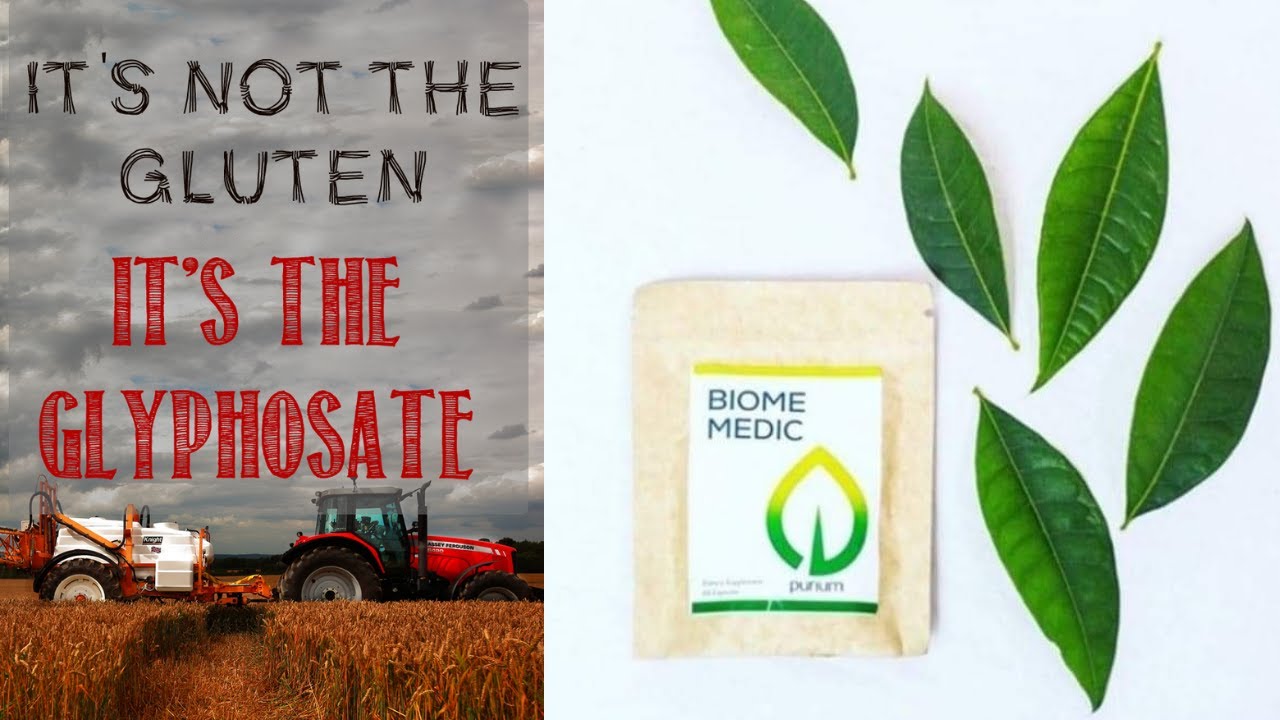It’s Not the Gluten, It’s the Glyphosate: Understanding the Real Culprit Behind Food Sensitivities
In recent years, there’s been a notable rise in people identifying gluten as the source of various health issues. While some individuals genuinely struggle with celiac disease or gluten sensitivity, a growing body of evidence suggests that the real problem may not lie with gluten itself but with glyphosate, a widely used herbicide in modern agriculture. Understanding this connection is critical for consumers who are concerned about their health and well-being.

Glyphosate, a key ingredient in many herbicides, has been a subject of controversy for quite some time. It was initially launched as a safe and effective way to control weeds in crops, especially genetically modified ones. However, its widespread application has raised alarms regarding potential health risks, particularly to sensitive populations. Many grains that contain gluten, such as wheat, barley, and rye, are often treated with glyphosate just before harvest, an application known as "desiccation." This process not only reduces moisture levels but also helps to increase yield. Unfortunately, it also results in glyphosate residues in the grain, which may contribute to various health issues.
Research suggests that glyphosate can disrupt gut health. It is known to interfere with gut bacteria and can lead to an imbalance in the microbiome — a condition that has been linked to numerous ailments, including digestive disorders, systemic inflammation, and even autoimmune diseases. This disruption can mimic symptoms that are often associated with gluten intolerance, which is why many individuals may erroneously attribute their discomfort to gluten rather than considering the possible effects of glyphosate exposure.
A critical aspect to consider is the growing trend of organic farming. Organic grains are typically grown without the use of synthetic herbicides like glyphosate. Consumers opting for organic products might find they experience fewer symptoms traditionally associated with gluten. Choosing organic grains not only supports environmentally friendly farming practices but also may provide a solution for those who are sensitive to glyphosate.
Furthermore, the link between glyphosate and chronic health issues is being studied more extensively. Some studies indicate correlations between glyphosate exposure and conditions such as non-Hodgkin lymphoma and metabolic disorders. While definitive conclusions about causation are still being explored, the evidence suggests that glyphosate poses a potential risk to human health that should not be overlooked.
It’s also worth noting that awareness of food quality is on the rise. Many consumers are becoming more conscious of food sources, and this newfound awareness allows for more informed choices regarding diet. Reading labels and understanding where food comes from is key. More people are seeking out glyphosate-free options as they strive to lead healthier lives, and this shift could ultimately drive changes in agricultural practices.
Switching focus back to gluten, it is essential to spotlight information regarding dietary choices. Instead of strictly avoiding gluten, individuals might consider evaluating their overall diet and the presence of chemical residues in their food. Simple changes, such as opting for fresh, unprocessed foods or seeking out local organic farms, can significantly impact health. This approach allows for a more holistic view of nutrition, addressing root causes of health issues rather than simply treating symptoms.
Amidst the discussions around gluten and glyphosate, it’s clear that public interest continues to grow. Consumers deserve to know exactly what is in their food and how it might affect their health. As more research highlights the potential negative impact of glyphosate, especially when paired with gluten-containing foods, it becomes increasingly important to advocate for cleaner agricultural practices and clearer labeling.
In conclusion, although gluten has been scapegoated for various health problems, the real issue could indeed be glyphosate and its effects on our bodies. By being informed and mindful about what we consume, we can take proactive steps toward better health and well-being. Prioritizing organic options and understanding the implications of pesticides like glyphosate empowers consumers, leading to healthier dietary choices and lifestyles.




